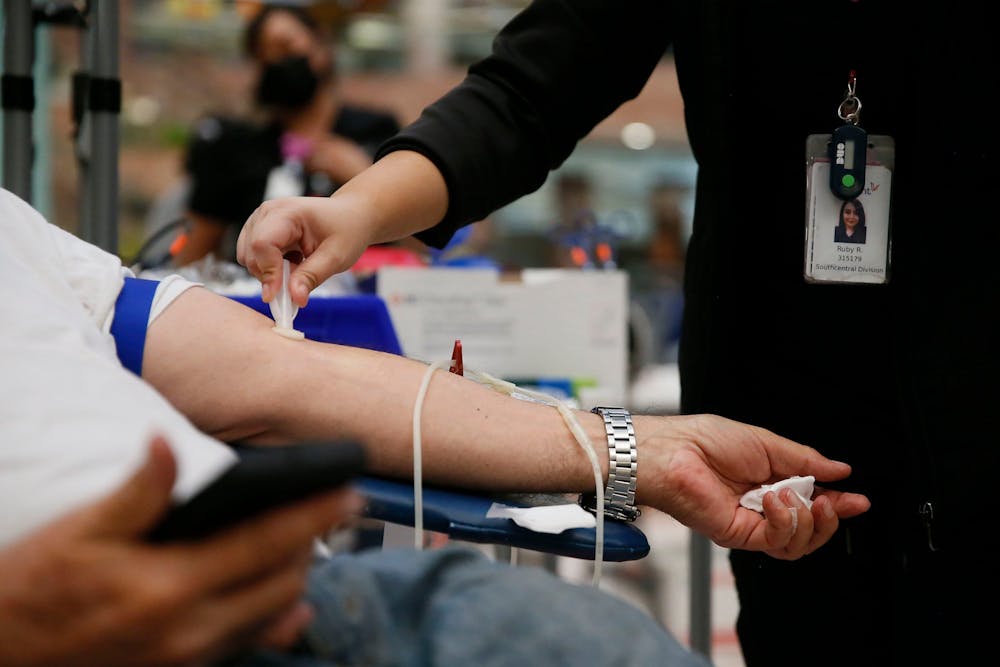The national blood shortage is growing more severe by the day. In March of 2020, when COVID-19 forced blood drive cancellations, there were 86,000 fewer donations nationwide.
UNC is hosting its 23rd annual Holiday Blood Drive next month, in partnership with the Red Cross, and students are encouraged to show up and donate to combat this public health emergency, but one glaring guideline continues to be a barrier to donations: gay and bisexual men face limits on their ability to donate.
The FDA does not allow men who have sex with men (MSM) to donate blood within three months of intercourse. This policy is a shift from a lifetime ban on MSM’s blood donations, which turned into a 12-month deferral in 2015 to cope with blood shortages. The policy extends beyond blood to other bodily fluids and soft tissue donation, like sperm or corneas.
The supply shortages worsened by the pandemic led the Red Cross to reduce this prerequisite to a three-month deferral. For many gay and bisexual men, a three-month deferral still results in ineligibility.
These policies have their origins in the HIV/AIDS epidemic of the 1980s, where MSM were thought to have a higher incidence of HIV. It’s worth noting that this arena of health policy was developing at a time when HIV was not well understood, and the ability to treat it or test for it in donations was nonexistent.
Today, all donations are tested for blood-borne diseases with high accuracy. Instead of science, prejudice drove policy. And the effects of these prejudices linger today.
Gay and bisexual men, although facing higher rates of HIV infection than their lesbian or heterosexual counterparts, are not the only groups who are deemed high-risk. In fact, anyone's risk for HIV or STD infection is highly variable and depends on individual behaviors.
Under FDA regulations, however, gay men engaging in protected sex or in monogamous relationships – low-risk behaviors – are barred while heterosexual donors who may engage in unsafe sex or other risky behaviors are not.
These policies do not treat groups of similar infection risk equally, reflecting not only lapses in health policy but also the prejudices of the time in which they were made.



